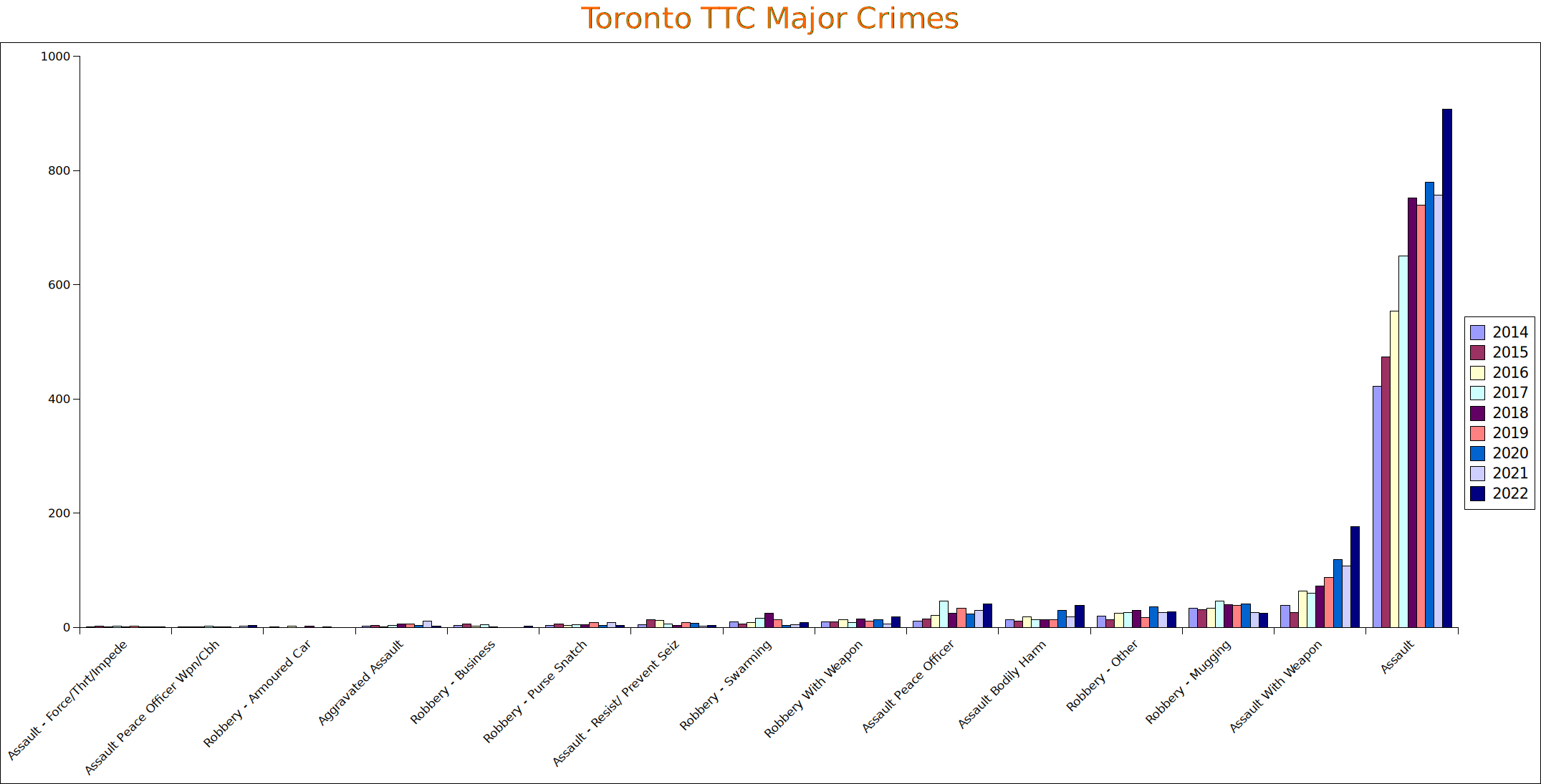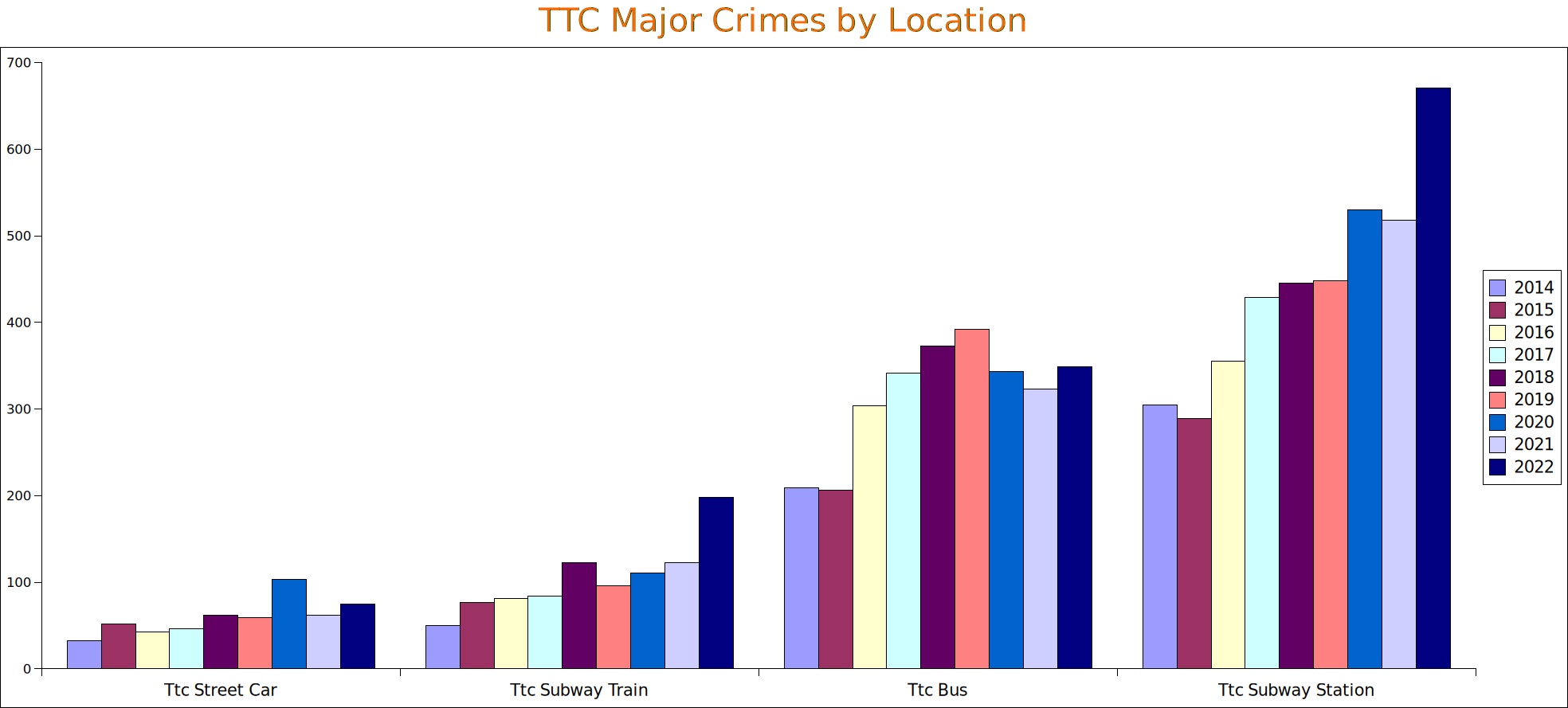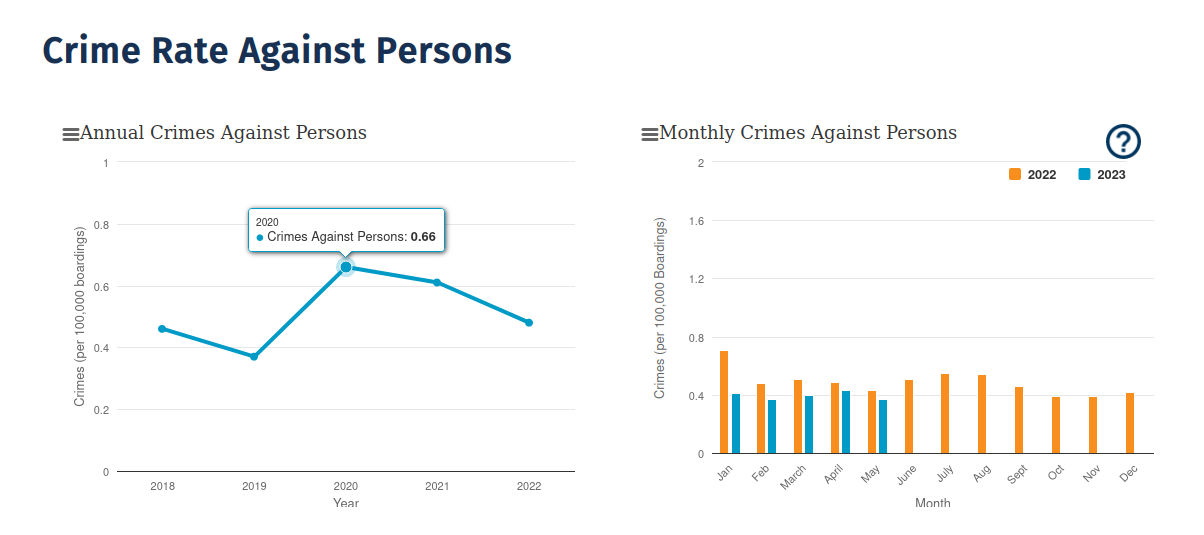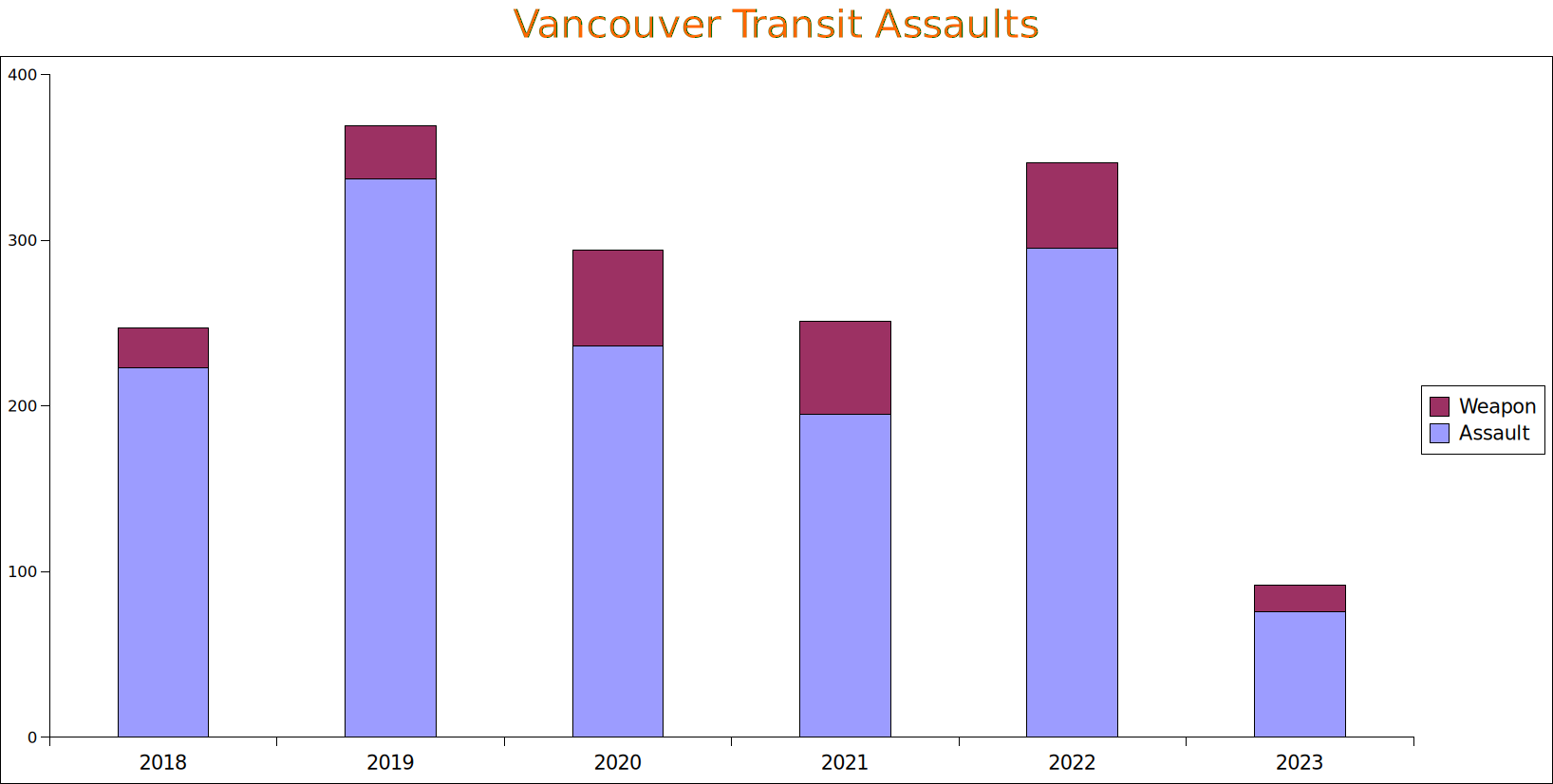Safety on Public Transit
Global mental health crisis on transit
Committees examining USA and European violence on transit have identified lack of response of mental health and housing supports as the main reason for increased safety concerns on transit.
The USA mayors identified mental health as the primary concerns for municipalities. Secondary concerns are lack of housing and safe injection sites. Transit systems become the safe injection sites and safer shelter options for unhoused.
Reduced ridership saw the incidents of per-rider crimes increase across most transit systems in the world. The absolute number of incidents has also increased over the period from early 2000s, but again mostly attributed to mental health and housing.
The crisis that became very clear during the pandemic was already a slow moving crisis since 2012.
Violence on Transit
In Toronto, data shows assaults on transit have jumped and are the main crime on transit systems. All other forms of violence have not changed significantly.
The increase in assaults have occurred almost exclusively in subway stations with some knock-on effect of increasing the number of incidents on subway trains.
The increase started well before the pandemic.


In Vancouver, major incidents have not seen the same increase, but there was a slight uptick in crimes against persons (mostly assaults) in 2020/2021 when compared to previous to the pandemic. These stats are a function of ridership, so it may be that a reduction in total ridership caused the increase in proportion of incidents.


CUTA's response
The Canadian Urban Transit Association has responded to the uptick in incidents being reported by pushing a change to the criminal code. The goal is to expand the strengthened penalties beyond operators (drivers) to all transit workers.
It is very unclear at this point whether increased penalties deters acts of assault and violence against workers in transit systems. If acts of violence are in response to the current mental health, drug, and housing crisis then it is unlikely to impact these stats much.
CUTA government recommendations:
The recommendations also call on the Government of Canada to strengthen penalties for assault on all transit workers by amending subsection 269.01 of the criminal code to include all transit workers, not just transit operators.
Bill 151, Zero Tolerance to Violence on Public Transit Act, 2009
Specifically, the penalties for already major crimes on transit systems:
Offence and penalty
(4) A person who contravenes subsection (1), (2) or (3) is guilty of an offence and on conviction,
(a) is liable to a fine of not more than $50,000 or to imprisonment for a term of two years less a day, or to both; and
(b) is prohibited from entering any property that is part of a public transit system or that is used in connection with the operation of a public transit system.
 Marine Road Rail
Marine Road Rail